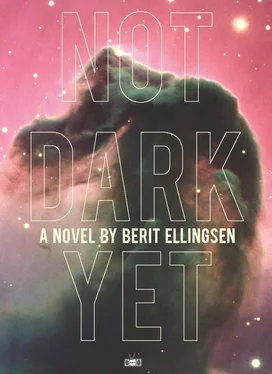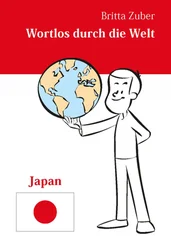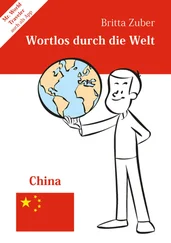“What have you got in that cart, grandpa?” Kepler muttered.
Both the man and the donkey were gray-haired and rheumatic-looking and moved at an infinitesimal pace along the road. The man wiped moisture from his deeply wrinkled face with a plaid handkerchief and flies buzzed around the animal’s muzzle. When the two had passed the midpoint of their field of view, the man stopped the donkey, glanced around, hobbled over to the cart, and lifted the edge of the tarp. Both Kepler and he froze on their glass. The old man took something they couldn’t see out from the cargo and crouched behind the cart.
“Is he in cover from you?” Kepler said.
“No,” he said. “The top of his head is just above the edge.”
“Will that be enough?”
“Yes.”
Kepler gave him the distance and windage to the upper railing of the cart, he adjusted, and took the final aim. But then the donkey shifted sleepily on its hooves and pulled the vehicle ahead a few steps, revealing that the man’s activities behind it were entirely peaceful, if very private, and that the object he had taken out was a bottle of water to use afterward.
“In all the holy hells!” Kepler laughed and lowered his rangefinder. “That would have sounded good in the debrief, killed civilian while he was taking a crap!”
He laughed too, against his will.
After the old man and the donkey had vanished, only dust stirred up by the breeze moved along the road for a good while. In the late afternoon four women appeared, carrying water in scuffed plastic cans, infants on their arms, toddlers clutching their hands, with slightly older children plodding behind them. Some of the youngsters clenched loaves of bread in their dirty hands.
“Pew pew!” Kepler said while staring into the binoculars, then gave him the distance and windage of the passing group.
“Oh, please,” he said.
“What?” Kepler said. “They’ll grow up to be enemy fighters.”
“I’m hungry,” Kepler said an hour after the women and children disappeared. One more hour and Kepler took out and unwrapped a protein bar, bit off a generous piece, and held out the rest to him.
“No,” he said, “I don’t want any.”
Kepler moved the bar a little closer and waved it so the smell of cereal and sugar reached him.
He broke off the end, chewed slowly, could barely get it down.
Kepler held the food out to him again.
Once, he had gotten heatstroke from the sun and low blood sugar, and fainted in position. Kepler had doused his head and neck with drinking water and fireman-carried him back to the camp. The last thing he remembered from that trip was hanging limply over Kepler, vomiting on the spotter’s shoulder, and Kepler saying: “Hang on, we’ll be there soon.”
They took turns to get up and stretch and relieve themselves in a corner in the next room. When they were out on nights off Kepler for some reason refused to use public toilets, and as a result had a bladder which seemed to contain liters, but outdoors and in the rubble the man had no such compunctions. He, on the other hand, loathed the patrols where he couldn’t move and had to do his business where he lay, like a wild animal, and returned to the camp stinking as one.
“They’re not even trying today,” Kepler said. “Have we put the fear in them for good?”
“Just wait till it gets dark,” he said.
The sky turned more and more fiery before the sun dropped behind the mountains on the other side of the valley. He missed the bright, protracted dusks of home.
Several hours after nightfall there was movement on the road. In the night vision optics four figures were clearly visible. They were carrying backpacks and bags and moved quickly along the ditch on the far side of the thoroughfare. Kepler remained quiet. The group was several hundred meters away, but sound carried far in the rural quiet. The four figures stopped and put their loads down. Two of them peeled open the bags, while the others rose and started digging with hand shovels in the old wheel tracks on the road. Something looked odd about the four, but he couldn’t tell exactly what. Then he realized they were very young, perhaps only eleven or twelve, just a few years older than the children they had watched scamper after the women earlier in the day. He watched them intently. Kepler had not given him the range, but the group remained close to where the old man had stopped, and he could easily calculate the number himself. At sundown the evening had been almost windless, and as far as he could tell, the breeze had not picked up since then.
He glanced at Kepler. The spotter was watching the children through the binoculars, breath rapid and uncontrolled. He sank back behind his scope. Now the two with the bags had extracted the contents completely, large objects sprouting a profusion of wires. Slowly and carefully, the boys picked one device up between them and started carrying it over to the shallow hole the two others had made in the ground.
“Distance?” he whispered.
No reply.
“Kepler,” he hissed.
“I’ll call it in after,” Kepler said. “The mine crew can…”
“I’m not risking that,” he said.
Silence.
“Distance,” he said. Two pairs of hands started lowering the first device into the hole.
“They’re just children,” Kepler hissed. “Are you really going to shoot all four of them?”
“No,” he said, exhaled, and entered the space between one breath and the next.
The round curved out of the muzzle, glowing faintly on its trajectory like a falling star. Then the wired object exploded, with a pop more than a bang, which nevertheless tore the night apart. Almost immediately, the first detonation was followed by a second, the other device going off in the shockwave from the first. Then the fire and smoke from both flared in his sights. He scanned the ground for the dead. Only a few scattered remains were left of the two that had been burying the device. The others had been digging close by when the explosive went off. There they were, still alive, but something was clearly wrong. They weren’t trying to crawl or roll away from the debris that was falling and smoldering around them. Instead they were writhing and gasping on the ground, clawing at their eyes and foaming at the mouth. For a second he didn’t understand what had happened.
“What the hell?” Kepler said, still behind the binoculars.
“Gas,” he said. “From the devices.”
“Jesus,” Kepler said, snapping for air.
“Time to leave,” he said, looking up from the scope and pushing the night vision goggles on his helmet down.
“No,” Kepler said, tugging at his sleeve like a little boy. “We have to help them!”
“Their friends will be there soon.”
“At least put them out of their misery!”
“What?” he said.
“Look. Look!” Kepler flipped his goggles back up and pushed the binoculars down in front of his face, banging it hard into his upper lip. In the green illumination in the rangefinder the two surviving boys were still moving.
“If I shoot them now,” he hissed while pushing the binoculars away, “that will be even worse! Killing injured civilians, not giving them a chance to get help. Even you must understand that!” Before Kepler could stop him, he pushed off from the ground, shouldered his weapon, and started toward the stairwell.
Behind him he heard the quiet shuffle of Kepler rising, picking up the backpack, and following him across the floor.
They relocated to another spot in the hope of capturing the people who had instructed the children to plant the devices, but no one came to the boys’ aid. The road was empty, the night again dark and quiet, and they were told to return to the camp.
After the debrief neither he nor Kepler received a reprimand, but the previously frequent and intense goading to have them enter the kills contest stopped. Kepler carefully guarded his words around him and could barely meet his eyes. After he left the service, he didn’t hear from Kepler again. He never told Michael or Katsuhiro or anybody else what he had done.
Читать дальше












